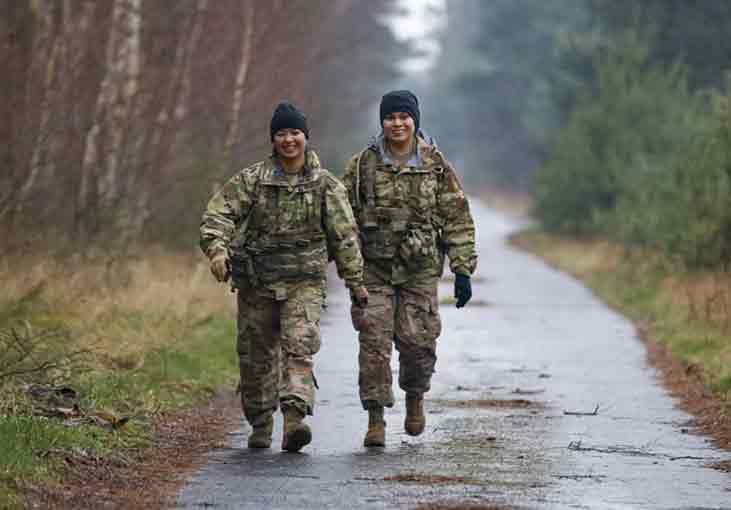Have you ever laughed at something you didn’t think was funny because the people around you were laughing?
If you said “yes,” you’re not alone. Following the lead of people similar to you and doing what other people do happens often and plays into the culture of health and wellness in the military. You might feel social pressure to act in certain ways, whether it’s following how your unit interprets a military policy or acting the same way as most of your unit. For example, if you see your peers reaching for energy drinks, you might find yourself doing the same.
But if you feel like following the crowd is hurting your health, here are 4 steps you can take to improve your Total Force Fitness and change military wellness culture:
- Start with a small step. Changes to military wellness culture don’t need to be big changes. Even small steps can make a difference. Small steps are less overwhelming than big steps, and they set you up for success over time because they add up. So although it might not seem like it’s making a big difference, making a small change, like meditating for 10 minutes before bed, switching from energy drinks to hydration drinks, or taking the stairs instead of the elevator, can improve your health, Total Force Fitness, and the health and wellness culture in your unit.
- Model change. People naturally follow the lead of others like them. The logic is that if someone else is doing something, and you want to be like them (or you see yourself as similar to them), then you might feel social pressure to do the same thing. So if you see your battle buddy rucking, you might opt to ruck instead of using a cardio machine at the gym. Since it’s likely others are also looking at you and following your lead, be sure to model the change you want to see! For example, take your earned leave or seek help for mental health issues to model for others those actions are an acceptable part of military culture.
- Turn off autopilot. When there are so many decisions to make about your health every day, you might be on autopilot—going through the motions or sticking to old habits without thinking about the effects. You can turn off autopilot by thinking independently about what makes sense for your personal health. Just because someone else is doing something doesn’t mean it makes sense for you, so their action shouldn’t be the only basis for your decision-making. For example, different people have different nutrition needs, so automatically fueling yourself like them won’t necessarily be what’s best for you. Take the time to personalize your health habits, such as tailoring your nutrition plan or creating a personalized fatigue management plan. Find resources that can help you.
- Have open conversations. Open communication about culture change can be tough. It can feel risky to share vulnerable information about yourself, especially when you don’t want to be viewed as weak or feel judged. But being vulnerable by sharing information about yourself builds trust and often leads to others sharing personal information too. For example, you might find out you share the same sleep struggles as a fellow battle buddy. It can feel comforting to know others understand what you’re going through or have gone through something similar. It can make you feel supported, and that support can help you successfully change your behavior. So have open conversations, whether it’s with your battle buddies or offering feedback up your chain of command to build the culture around wellness and improve Total Force Fitness.
To learn more about changing behaviors to improve the culture around military wellness and Total Force Fitness, check out these HPRC resources:
20 hacks to help you build good habits
Assessing readiness to change behaviors
